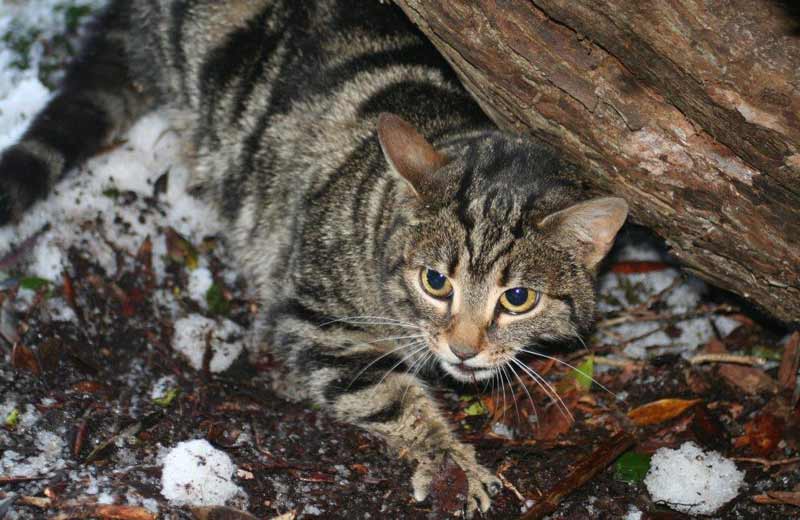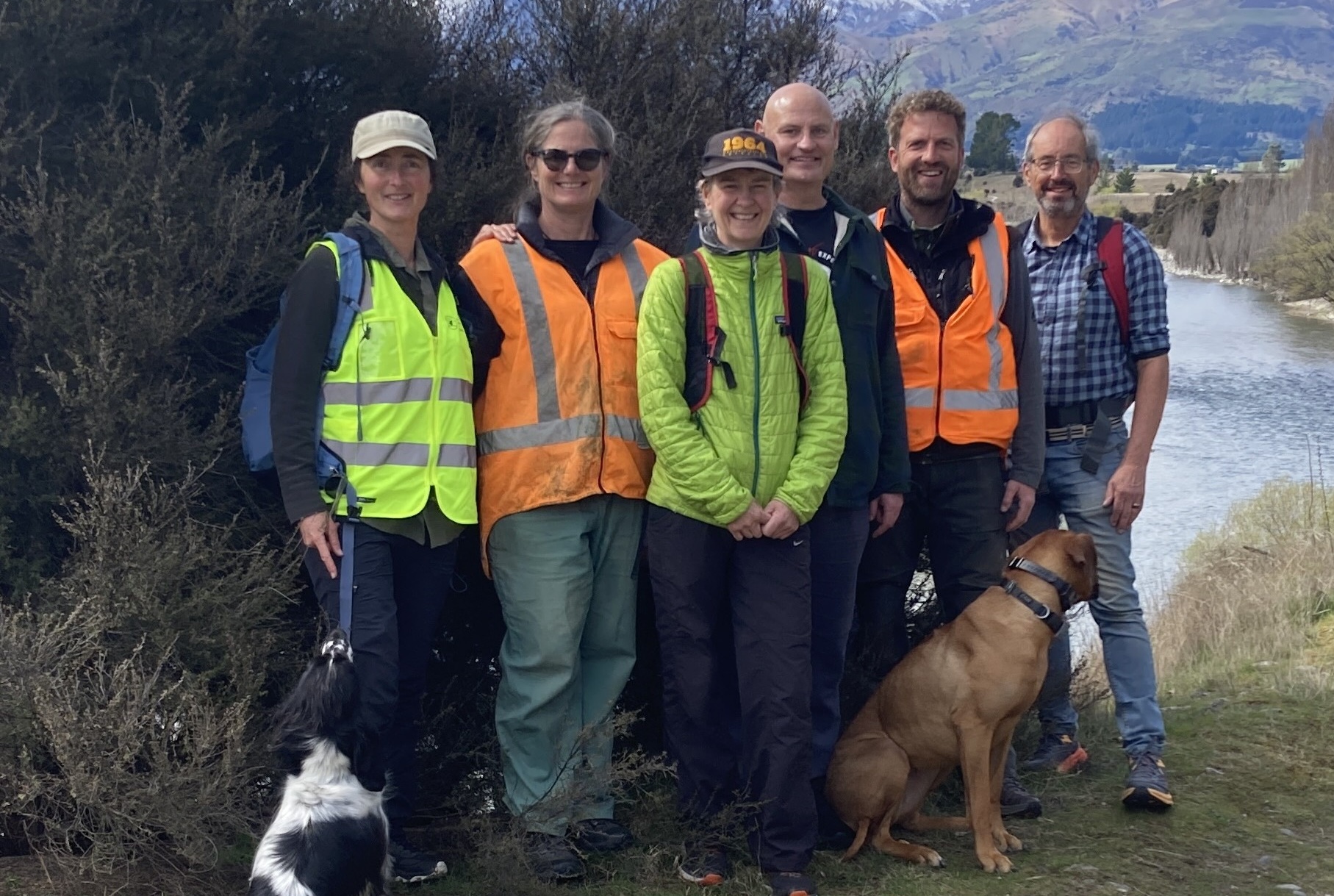Feral cats a ‘growing local threat’
Maddy Harker
26 November 2025, 4:00 PM
 A feral cat in the snow. PHOTO: Colin Bishop/Department of Conservation
A feral cat in the snow. PHOTO: Colin Bishop/Department of ConservationPredator Free Wānaka (PFW) says the government’s announcement that feral cats will be included in its Predator Free 2050 target species list is a positive step - but cautions that practical change will depend on “clear legislation”.
On Friday (November 21) conservation minister Tama Potaka said the government would deliver on its campaign promise to add feral cats to the list, following a surge in public pressure and on the back of decisive public input on a predator management strategy.
Feral cats are one of the most ferocious predators in the New Zealand ecosystem, feeding on rabbits, birds and birds’ eggs, rats, hares, bats, lizards, mice, wētā and other insects.
They are an "increasingly significant issue” locally, Southern Lakes Sanctuary community engagement coordinator Katie Dunlop told the Wānaka App.
PFW is one of the local conservation groups which forms the Southern Lakes Sanctuary consortium, and the group’s more than 130 volunteers focus on controlling rats, stoats, possums, hedgehogs and other introduced predators across more than 800 traps and 28 traplines.

Predator Free Wānaka volunteers undertaking predator control work. PHOTO: Predator Free Wānaka
This work has helped increase sightings of tūī, korimako (bellbird), and kererū, and improved nesting success in monitored areas - but feral cats are outside its remit, despite them being a “growing threat”.
“While we do not trap feral cats ourselves, we frequently hear observations from local landowners and volunteers about cat predation on native wildlife,” Katie said.
One local rural landowner had caught 20 feral cats in the last year.
Inconsistent rules around domestic cat ownership, roaming, and de-sexing are among the factors that make coordinated community action difficult, Katie said.
The increased awareness of the damage caused by feral cats “has helped raise awareness but it has not yet created practical change for our day-to-day operations”, she said.
“Clear legislation would be needed before a community group like PFW could start to help tackle the feral cat issue.”
Still, she said the government announcement was “an important step, as it signals stronger national direction and general public support”.
“In practice, it could lead to more consistent rules, better tools, and improved support for protecting our taonga species.”
During his announcement last week, the conservation minister said the Department of Conservation’s consultation on the Predator Free Strategy received close to 3,400 submissions, with over 90 percent backing improved feral cat management.
The full Predator Free 2050 strategy will be released in March 2026, he said.
Learn more about PFW, and how to get involved in their work, here.







